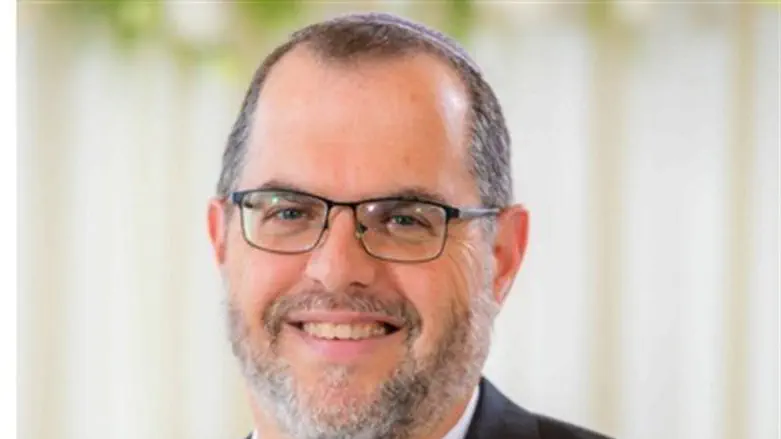
Moshe rebukes the people of Israel telling them not to think that they merited the Land of Israel because of their righteousness but because of the promise to the patriarchs. It is precisely from these words of rebuke that we find good news for the people of Israel.
The parsha of Eikev challenges us. In his last speech to the Jewish people, Moshe says things that are very difficult to accept: "Not because of your righteousness did you merit the land but to fulfill the promise that I made to your fathers, to Abraham, to Isaac, and to Jacob, and you knew that it was not because of your virtue that the L-rd your G-d gave you this good land to inherit." In simple words, Moshe says to the people of Israel: When you enter the Land of Israel, do not think that you have merited the Land of Israel because of your righteousness, but because of the promise to the patriarchs.
This is most difficult to understand: the people of Israel do not deserve the Land of Israel in their own right? Is our claim to the Land of Israel only because of a patriarchal covenant? What feeling does this cause the people of Israel when they hear this, and what motivation does this give them to enter the Land of Israel?
If we look deeper into what is happening here, we find that the words of Moshe not only do not diminish our connection to the Land of Israel, but actually strengthen it! Moshe Rabbeinu is explaining to the people that our connection to the land does not depend on our righteousness, because it is beyond the deeds and behavior of any one generation.
To the contrary, the connection between the people of Israel and the Land of Israel is based on a divine covenant since the days of the patriarchs, and therefore it is an eternal connection that can never be undone! If our connection to the Land of Israel depended on the righteousness of a particular generation, then, G-d forbid, a situation could arise in which a sinful generation would sever the connection between the people and the land. Therefore, Moshe Rabbeinu finds it appropriate to emphasize that the connection between the people of Israel and the Land of Israel has been based on a divine covenant since the days of the patriarchs.
This is similar to the words of Rabbi Zera. The Gemara quotes Rabbi Zera who says: “A Jew who sins, even though he has sinned he is still a Jew." Just as a Jew cannot lose his Jewishness even if he sins because a Jewish soul is a divine creation and does not depend on his deeds, so too the connection between the people of Israel and the Land of Israel is a divine bond that can never be broken, even if, G-d forbid, the people of Israel sin.
Of course, our free choice and the behavior of each individual and the entire nation affect the nature of the relationship between the people of Israel and the Land of Israel, as well as whether redemption will come quickly and easily. But the very connection itself does not depend on our deeds but is eternal and divine. This is the good news that Moshe Rabbeinu gives to the people of Israel in our parsha, and thus he instills in them the security and stability of the connection between the people and the land.
This week we celebrated Tu B'Av, nowadays thought of as "Jewish Valentine's Day". In the same way that the bond between the people and the land is a deep, profound connection, a relationship between spouses cannot rely solely on the emotion of love that has its ups and downs. A relationship needs an anchor of stability and security based on the alliance of marriage and commitment to each other and to the holiness of a couple within the Jewish nation.
Rabbi Shlomo Sobol is the head of the Barkai Center for Practical Rabbinics and Community Development and the rabbi of Kehillat Shaarei Yonah Menachem community in Modi'in